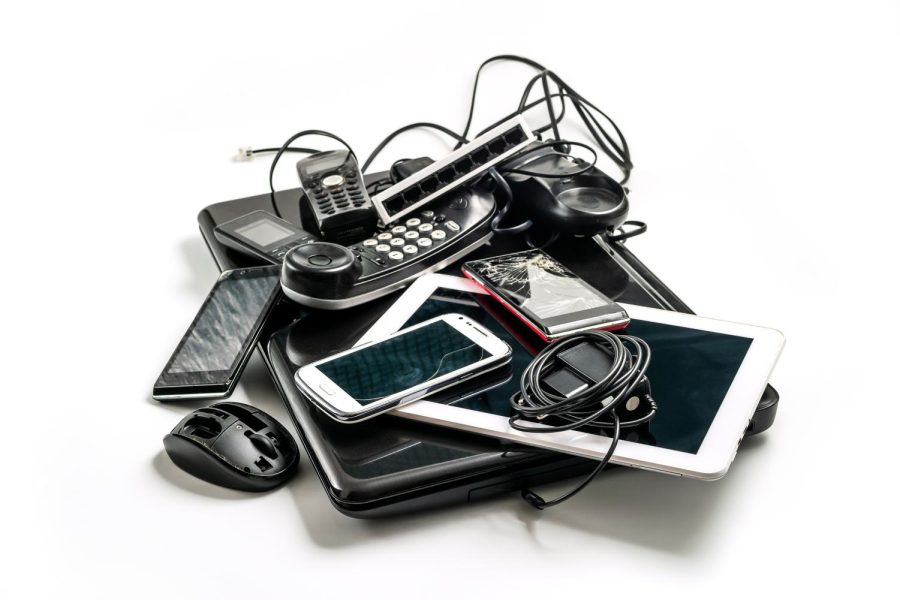Opinion | E-waste is a bigger problem than you may think
Electronic waste needs to be talked about and combated more.
March 28, 2023
The landfills piled with unwanted junk illustrated in the movie WALL-E are not far off from what our future could look like.
There are plenty of places that resemble these junkyards today, as the amount of electronic waste is rapidly growing. In 2022, Iowa was ranked seventh nationwide for waste management. However, it was docked in the electronic waste category due to a lack of e-waste recycling presence and initiatives.
The improper disposal of electronic goods is a growing and dangerous form of toxic waste that is often overlooked when it comes to recycling initiatives.
E-waste is not confined to old television sets or other large, expensive devices. Children’s battery-powered toys, electric toothbrushes, and kitchen appliances all fall into the category of toxic e-waste. It is properly defined as any discarded product with a battery or plug.
The website for the University of Iowa’s Office of Sustainability and the Environment contains plenty of information about on and off-campus recycling when it comes to paper, plastic, and food products. Still, there is little information about disposal of electronic waste, and no information that comes up without digging in.
According to the United Nations Environment Program, only 20 percent of e-waste is recycled. Initiatives to recycle and refurbish electronic devices cannot be completely effective without individual consumers being educated on the subject.
Its toxicity is because of the amount of non-biodegradable elements present. These toxic materials are absorbed by the environment and go on to contaminate land, water, and air, as well as negatively affect the well-being of all living creatures.
We should all be alarmed at the increasing rate of e-waste. The global capacity of e-waste has grown by 60 percent in the last ten years, as reported by Statista, and it continues to grow with no indication of slowing down.
It is legal to send end-of-life electronic products to poor countries under the clause that they have potential to be reused or refurbished. However, corners are often cut to get rid of unwanted waste.
Parts of Asia and Africa are used as Western waste dumping grounds. This results in an absurdly dangerous amount of health risks and environmental pollution in already struggling countries.
Though this is a global issue that feels overwhelmingly out of reach, there is much that can be done as individuals that will have a positive impact on the state of the environment.
When looking for a responsible location to dispose of electronic waste, search up electronic recyclers in your area and be sure the website is equipped with an E-Steward label, which indicates they are certified to meet the proper standards.
East Side Recycling Center in Iowa City, Best Buy at the Coral Ridge Mall in Coralville, and Goodwill Reboot Location in Iowa City are all places where you can trust that your electronic devices will be recycled or refurbished rather than wasted.
The U.S. Environmental Protection Agency has made efforts to properly manage e-waste by collaborating with international environmental protection groups that are also working toward reducing its negative impacts.
The world WALL-E takes place in is a horrifying depiction of a potential reality. Educating ourselves and those around us on the severity of the e-waste issue as well as taking the initiative to control the part of the problem we can by giving our electronic devices a second life is essential.
These small changes have potential to benefit the health of our personal lives as well as the future of the world.
Columns reflect the opinions of the authors and are not necessarily those of the Editorial Board, The Daily Iowan, or other organizations in which the author may be involved.



